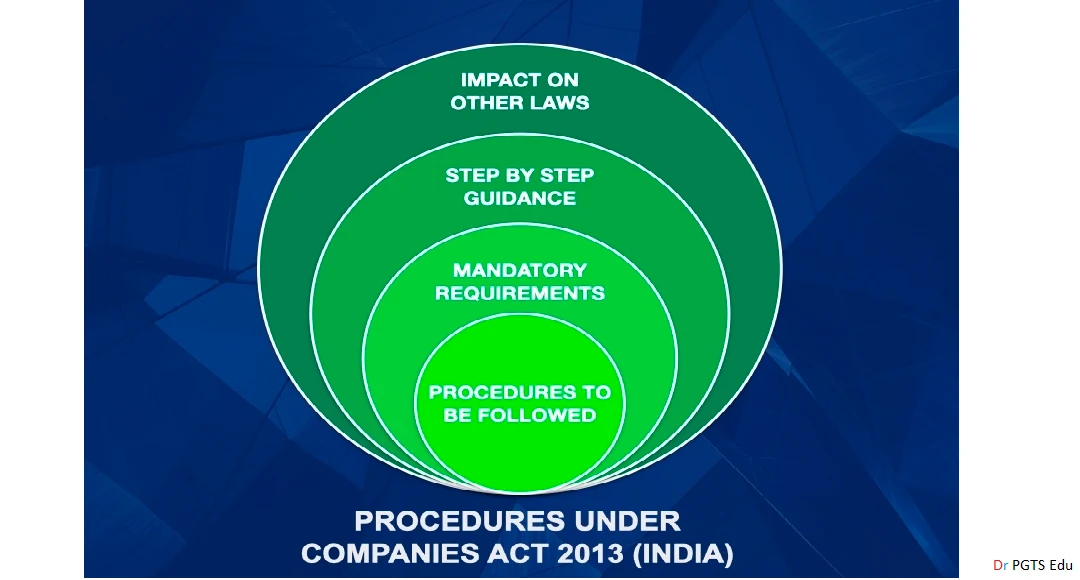Company law plays a crucial role in regulating businesses, ensuring legal compliance, and protecting stakeholders’ interests. In 2025, several updates in company law could significantly impact businesses, especially in India. This article explores the definitions, characteristics, types, functions, merits, demerits, and implementation of company laws in India, helping business owners stay informed and compliant.
Company Law Definition
Company law refers to the legal framework governing the formation, operation, and dissolution of companies. It encompasses a set of regulations that define the rights, responsibilities, and obligations of companies, their directors, shareholders, and stakeholders. In India, the Companies Act, 2013, serves as the primary legislation regulating corporate entities.
Characteristics of Company Law
- Legal Entity: A company is a separate legal entity distinct from its owners.
- Limited Liability: Shareholders’ liability is restricted to their investment in the company.
- Perpetual Succession: The company’s existence continues regardless of changes in ownership.
- Transferability of Shares: Shares can be transferred, ensuring business continuity.
- Regulatory Compliance: Companies must adhere to legal norms, including financial disclosures and corporate governance.
- Corporate Governance: Emphasizes transparency, accountability, and ethical business practices.

Kinds of Company Laws
Company laws in India categorize companies based on different factors such as liability, ownership, and incorporation. Some key classifications include:
1. Based on Incorporation:
- Statutory Companies: Created by a special act of Parliament (e.g., RBI, LIC).
- Registered Companies: Incorporated under the Companies Act, 2013.
2. Based on Liability:
- Limited by Shares: Liability limited to the unpaid value of shares.
- Limited by Guarantee: Liability limited to an agreed amount.
- Unlimited Liability Companies: Members’ liability is unrestricted.
3. Based on Ownership:
- Public Company: Requires at least seven members and allows public shareholding.
- Private Company: Requires at least two members with restrictions on public shareholding.
- One Person Company (OPC): A single entrepreneur-driven entity.
4. Based on Control:
- Holding Company: Controls other subsidiary companies.
- Subsidiary Company: Operates under a holding company.
- Government Company: The government holds at least 51% of shares.

Functions of Company Law
Company law serves multiple functions that ensure corporate governance, investor protection, and smooth business operations:
- Regulation of Business Entities: Establishes legal norms for business formation and operation.
- Protection of Shareholders & Investors: Ensures transparency in financial dealings.
- Corporate Governance: Defines responsibilities of directors and executives.
- Dispute Resolution: Provides a framework for resolving business conflicts.
- Financial Compliance: Mandates audits, tax filings, and financial reporting.
- Facilitating Mergers & Acquisitions: Regulates business restructuring and consolidations.
Merits and Demerits of Company Law
Merits:
- Legal Protection: Protects business owners from personal liabilities.
- Business Credibility: Increases investor confidence and trust.
- Perpetual Existence: Ensures business continuity despite ownership changes.
- Capital Raising: Facilitates fundraising through stock markets.
- Regulatory Oversight: Prevents fraudulent activities and malpractices.
Demerits:
- Complex Legal Framework: Requires legal expertise to ensure compliance.
- High Compliance Costs: Involves regulatory and auditing expenses.
- Government Interference: Subject to stringent government regulations.
- Delayed Decision-Making: Requires board approvals for major decisions.
- Public Disclosure Requirements: Financial data and operations become public, affecting competitive advantage.
Implementation of Company Laws in India
The Indian government implements company laws through various regulatory bodies and compliance measures:

- Ministry of Corporate Affairs (MCA): Oversees the administration and enforcement of company laws.
- Registrar of Companies (ROC): Maintains records of all registered companies.
- Securities and Exchange Board of India (SEBI): Regulates publicly traded companies and stock exchanges.
- National Company Law Tribunal (NCLT): Handles corporate disputes and insolvency matters.
- Goods and Services Tax (GST) & Income Tax Compliance: Ensures tax regulations align with company operations.
- Corporate Social Responsibility (CSR) Compliance: Mandates social responsibility contributions from eligible companies.
- Digital Compliance Initiatives: Online filings, e-signatures, and digital governance enhance ease of doing business.
Key Updates in 2025
As of 2025, several updates in company law aim to streamline business operations and enhance compliance:
- Increased Digitalization: Companies must adopt e-governance models for financial and operational transparency.
- Stricter Data Protection Laws: Compliance with digital security and privacy standards.
- Enhanced Corporate Social Responsibility (CSR) Mandates: Higher CSR spending thresholds for large corporations.
- Simplified Insolvency Proceedings: Faster resolution of bankruptcy and liquidation cases.
- Stronger Whistleblower Protection: Encouraging ethical business practices and curbing corruption.
- Sustainable Business Practices: Regulations promoting environmental and social governance (ESG) standards.
Company law in 2025 brings significant updates that could impact businesses in India. From regulatory compliance to corporate governance, understanding company law ensures smooth business operations and legal protection. Entrepreneurs, corporate leaders, and stakeholders must stay updated with these changes to navigate the evolving business landscape effectively. Keeping up with legal reforms will help businesses remain compliant, avoid legal challenges, and build a strong foundation for sustainable growth.
Read also: Commercial law trends in 2025 what every entrepreneur needs to prepare for

